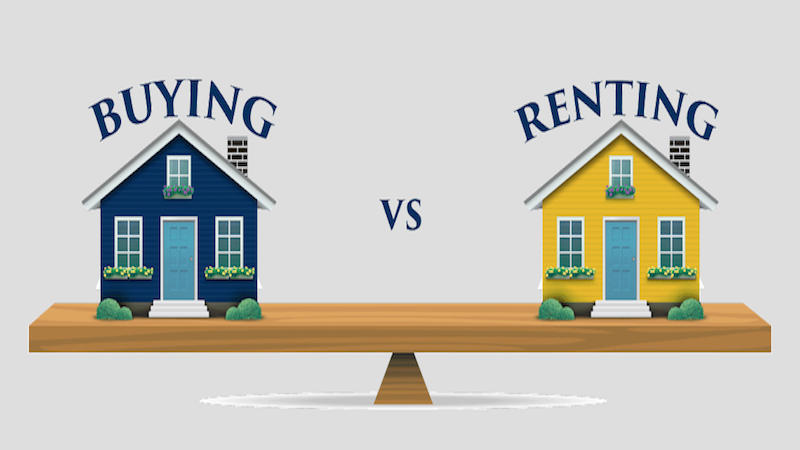One of the most important financial decisions you’ll have to make is whether to rent or purchase a property. In 2025, the choice is increasingly harder since property markets, interest rates, and lifestyle choices are all shifting. Owning a house has traditionally been seen as a symbol of prosperity and security, yet renting may provide you freedom and flexibility. So, how can you figure out which one is best for you?
Let’s look at the good and bad sides of renting and purchasing, and how to choose which is best for you.
Why You Should Rent
Renting could be the best choice for people who value flexibility, aren’t sure about their finances, or aren’t ready to settle down yet.
Pros:
* **Lower Upfront Costs:** Renting usually needs a deposit and one or two months’ rent, which makes it easier for people who don’t have a lot of money saved up to get into.
* **No Maintenance Costs:** You don’t have to worry about repairs or upkeep because your landlord takes care of them.
* **Flexibility:** Renting makes it easier to move for work, school, or changes in your life.
* **No Property Tax or Insurance Headaches:** Renters don’t have to worry about paying property taxes or homeowners insurance, which may add up to a lot of money each year.
Cons:
* **No Equity Building:** Paying rent every month doesn’t help you own the property or make money in the future. * **Rent Increases:** Landlords might raise the rent every time you renew, which can affect your long-term budget.
* **Limited Customization:** Most rental homes don’t let you make changes or personalize the space.
Why You Should Buy
Owning a home may help you grow money and provide you a feeling of stability. If you can afford it and want to stay in one place for a few years, purchasing may be a good investment.
Pros:
* **Equity Growth:** As you pay off your mortgage, you progressively gain more ownership of the home. * **Predictable Costs:** Fixed-rate mortgages have payments that stay the same, unlike rent that goes up and down.
* **Tax Benefits:** Homeowners may be able to deduct the interest on their mortgage and property taxes. * **Personalization:** You may change, decorate, and fix up your house anyway you like.
Pros:
* **High Upfront charges:** Down payments, closing charges, inspections, and moving costs may mount up quickly. * **Ongoing Maintenance:** As a homeowner, you’re responsible for any repairs and upkeep.
* **Market Risk:** The value of your property might go down, which would hurt your investment. * **Less Flexibility:** It takes time and work to sell a home, which makes it tougher to move fast.
How to Choose What’s Best for You
Think about:
* **How long will I be in one place? ** If you plan to stay for less than 3–5 years, renting could be a better option.
* **Do I have enough money saved up for a down payment and emergencies? * *Am I ready to take on the duties that come with owning a home? * * * * * * What is the housing market like where I live? **
Use calculators that show the difference between renting and buying to see how much each option will cost over time. You should base your choice on your own goals, financial situation, and lifestyle.
Last Thoughts
There is no one right option for everyone whether it comes to renting or purchasing. There are pros and cons to each choice. In 2025, the ideal decision will depend on where you are in life and what is most important to you: flexibility or stability, simplicity or the chance to invest. You will make the proper option for you if you look at your circumstance realistically.

Leave a Reply